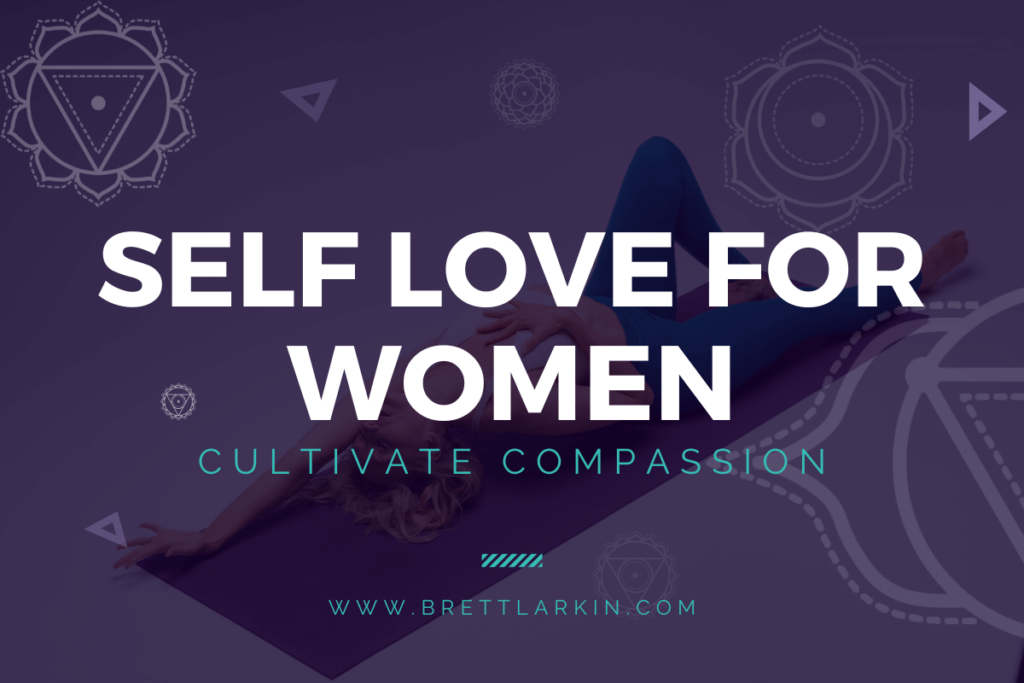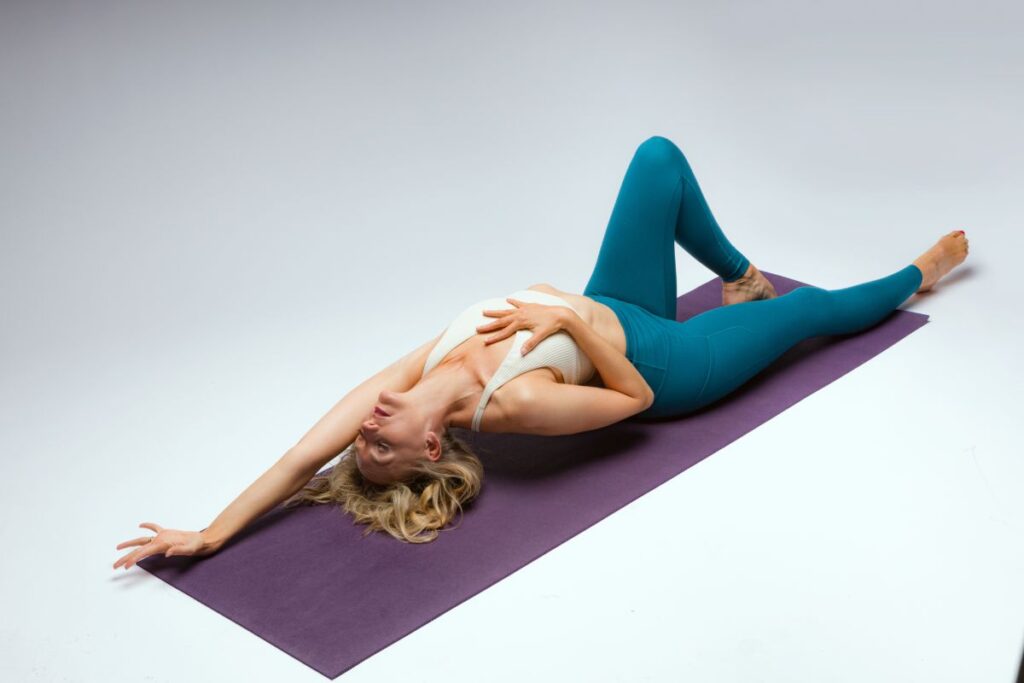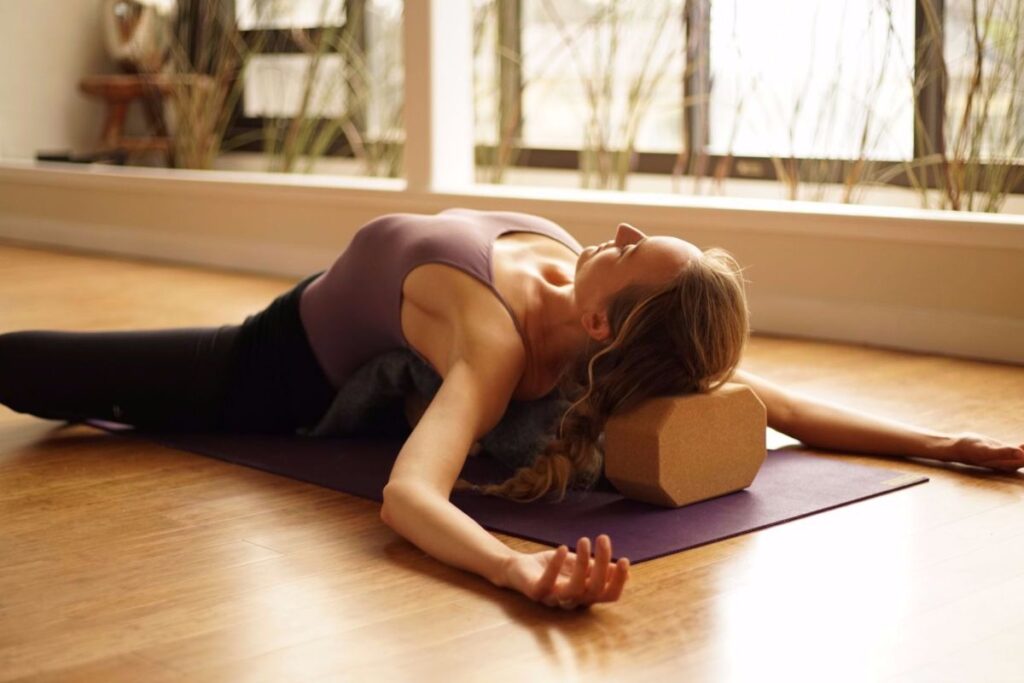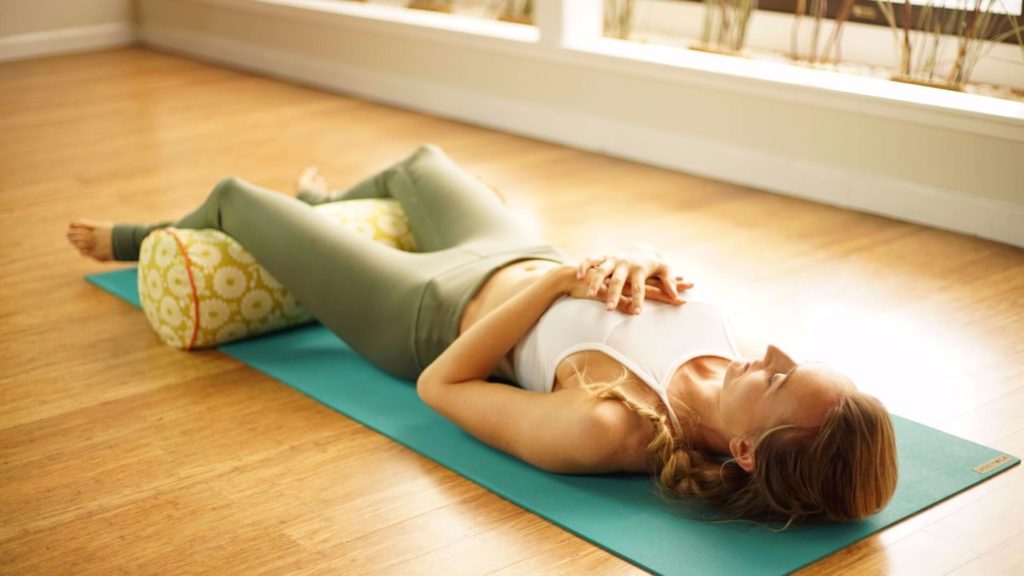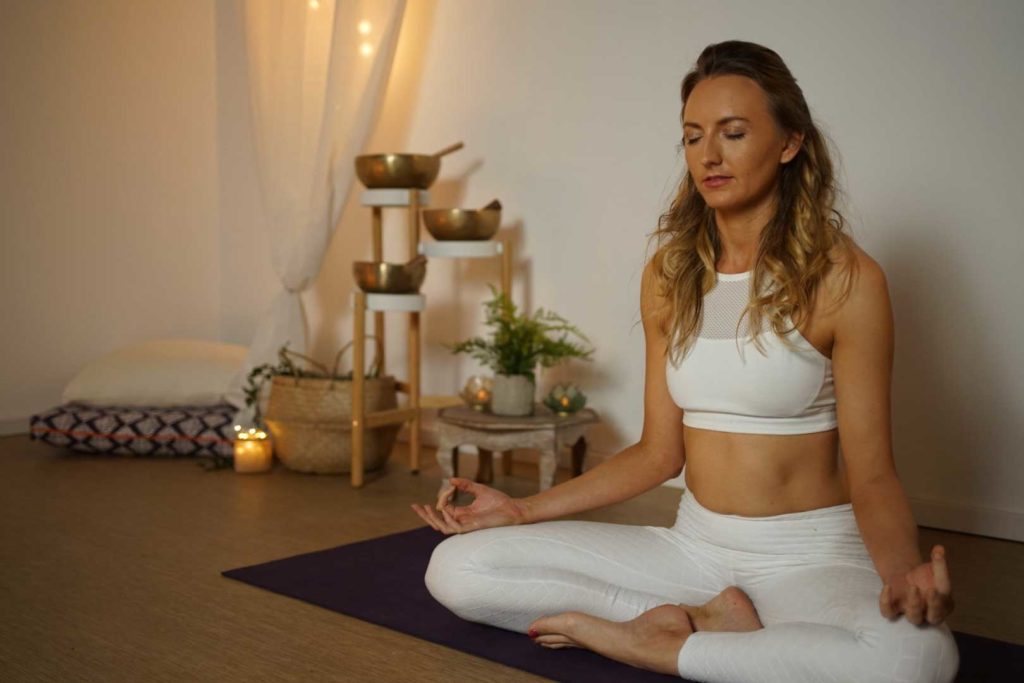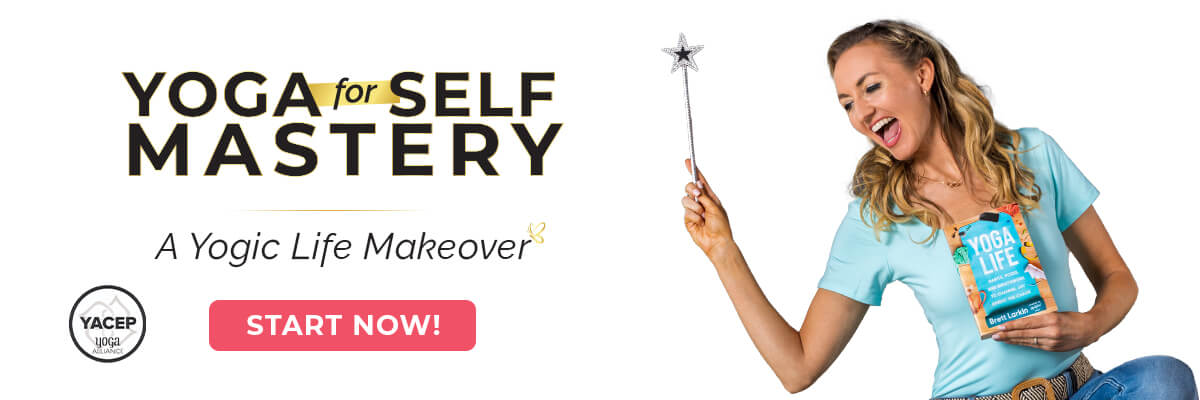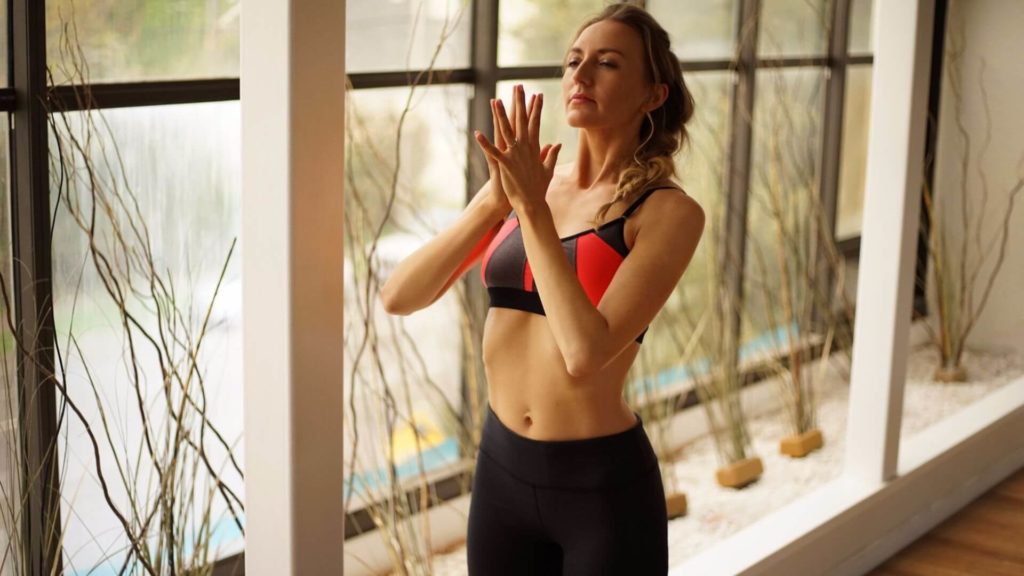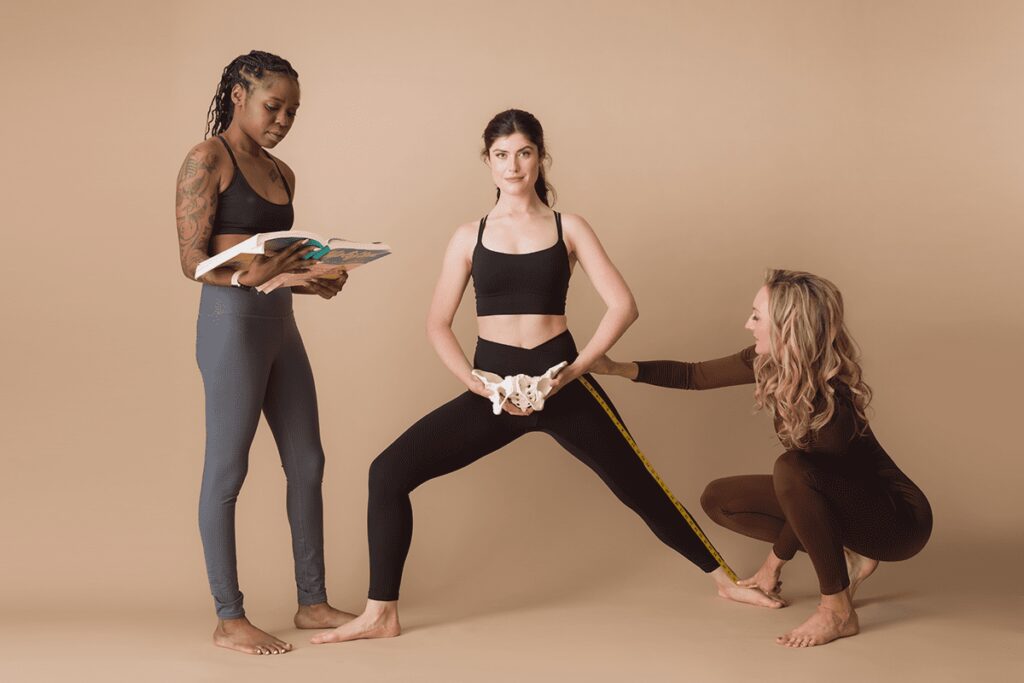I have a confession.
I didn’t always know what self-love looked like.
As someone who likes to go-go-go, in my younger years, slowing down enough to connect with myself felt like a waste of time. I had places to go and things to do!
But the deeper my yoga practice became, the more access I had to this thing called self-love.
I wish someone would have sat me down and taught me all of this from the very beginning.
So, that’s what I’m here to do for you. I want you to know all there is to know about loving yourself.
Because when you love yourself and operate from that place, you become a magnet for the life of your dreams.
So, let’s get started! First, I want to talk about what self love looks like for women. Think of this as your self love workbook – get your notebook and take notes as you read this.
What Is Self Love For Women?
As women, we’re often raised to practice the opposite of self love. Society conditions us to make ourselves small, quiet down, and put ourselves last. We’re taught to overgive to others, prioritize everyone else’s needs first, and to not shine too brightly. Life can feel like a juggling act. These are the common hurdles women face.
Because of this conditioning, self love is so essential for women.
Self love not only addresses embracing your whole self with kindness and acceptance, but it also involves acknowledging your journey, embracing your imperfections, and treating yourself with the tenderness you deserve.
It’s setting healthy boundaries, practicing epic care of yourself, and understanding that your value isn’t tied to external validations. It’s ending the juggling act to find peace through positive psychology and an improved body image. It’s a life filled with your own in depth knowledge of yourself, where you build self compassion and release self doubt.
Imagine self love as a nurturing hug during life’s toughest days.
Evert moment you love yourself, you’re honoring your unique essence.
I like to think of self-love as a quiet, powerful symphony creating beautiful music inside you that touches everything you do while recognizing your worth, forgiving your flaws, and allowing your inner light to shine authentically.
If this was your unique workbook, what would you say self love means to you? And why is it so important?
Why Loving Yourself Is Important
Loving yourself is a fundamental cornerstone of your overall well-being. If you want to live a happy, healthy life, research says you have to love yourself.
Cultivating self-love is SO important and here’s why:
- Mental Health Resilience: Research consistently shows that people with high levels of self-love and self-compassion tend to have greater mental health resilience (source). Self love fosters a positive mindset, reduces anxiety, and contributes to your overall emotional well-being. When life happens, you feel steady in the face of whatever arises.
- Better Relationships: When we love and accept ourselves, we’re better equipped to form healthier and more meaningful connections with others. A 2008 study suggests that people with higher self-esteem are more likely to have more satisfying relationships.
- Stress Reduction: Self-love acts as a protective barrier between you and the negative effects of stress. A study published in the International Journal of Behavioral Medicine found that self-compassion was associated with lower stress levels and improved coping mechanisms in response to life challenges.
- Health Benefits: Self-love is about loving your whole self – mind, body, and spirit – and it has tangible effects on your physical health. Positive self-esteem has been linked to lower cortisol levels and improved immune system functioning.
Think of nurturing self-love as an investment in your mental, emotional, and physical well-being, influencing every aspect of your life positively, like a ripple effect of goodness. It acts as a protective shield against stress, enhances relationships, and contributes to your ability to show up each day as your unique, bright self!
So, where do you start? How do you learn to embrace your whole self?
How To Learn To Love Yourself
Learning to love yourself is a gradual process. I know it was for me!
It took me years to connect the dots of what truly loving myself looked like. I have to build self compassion, just like I would a muscle. And just like returning to the yoga mat (or the gym) after months of not working out, it can feel uncomfortable to start integrating self love into your daily life, especially when it comes to setting boundaries with others.
When you start putting yourself first, feelings like self doubt, guilt, and discomfort might arise. This is totally normal. You’ve spent most of your life putting yourself last. Growing self love is a practice and it doesn’t happen overnight.
My advice? Always start small. Begin with tiny, manageable steps to set boundaries or try new things, gradually expanding your comfort zone.
When negative thoughts and self doubt creep in, use it as an opportunity to practice self compassion. As much as you can, try to replace negative self-talk with positive affirmations.
And even though self love is a solo adventure, you don’t have to do it alone. Getting support can help you release self doubt and remember you’re a part of a greater self love movement. Share your journey with a trusted friend or even a therapist or licensed clinical social worker. Your support network will encourage you to love yourself and prioritize your own needs.
When discomfort arises, embrace it as a sign that you’re growing. If you start saying no to things you’d usually say yes to, understand this might upset some people. But in this crazy world, you’re not here to please everybody. You’re here to love yourself and when you do that, it shows others around you how to do the same.
Most importantly, make time to celebrate your win’s! Did you start a self love journal? Pick up some new self help books? Take time to honor your younger self? Acknowledge the amazing gift you’re giving yourself. Celebrate your achievements, no matter how small. Building self-love is a journey, and every step forward is a success!
Remember, self-love is a journey of self-discovery and it’s okay to progress at your own pace. Be patient, kind to yourself, do inspiring activities, listen to your happy playlist, ask yourself deep questions, and embrace the evolving process with openness and understanding and I promise, you’ll find peace. One day soon you’ll look back and be grateful you spent all this time investing in your most important relationship: the one with yourself.
5 Ways To Love Yourself
Self love takes many forms. Whether you start with a self love workbook, positive psychology, or use a step by step process, not everybody will have the same path to self love. Just like we have different journeys to romantic love too!
Loving yourself is this fantastic blend of self-knowledge, self-compassion, self-care, gratitude, and setting boundaries. I want to share these 5 ways to love yourself as they’ve each been the cornerstone of my personal practice in defining self love.
1. Connect with your true essence
When I first started my self love journey, I was craving in depth knowledge. I wanted to practice self love just like I did my asanas on the yoga mat. The thing is: self love didn’t start outside me. There was no bestselling workbook with all the answers. I had to look within first.
One great way to do this is to find a memory that reminds you of your essence. For me, it was connecting with the feelings I had as a kid, growing up surrounded by nature, and spending time singing, and walking meditatively along this stone wall.
When I connect with that version of my younger self, I remember who I really am – without all of society’s labels. It’s like finding the purest form of myself and holding her in my heart. When self doubt comes up, I tap into her energy, remembering who I am is innately lovable and worthy. This is more powerful than all the self help books combined. Compassionate exercises rooted in your younger self are potently powerful. Keep a self love journal, maybe you’ll call it your self esteem workbook, and treat it as your companion in this crazy world. A place where you can take a prompted diary like approach and practice helpful exercises and assessment tools to connect with your inner child and find peace.
Take my feminine energy quiz to get a recommended practice for balancing YOUR feminine energy 👇
2. Practice Self-Compassion
Once you have this connection to your true essence, it’s easier to be compassionate.
Self-compassion involves treating yourself with the same kindness and understanding you would offer to your BFF. Researcher Dr. Kristin Neff defines self-compassion as having three main components: self-kindness, common humanity, and mindfulness.
To practice self-compassion, first, you must acknowledge your own suffering without judgment. Having a bad day? That’s okay. Woke up on the wrong side of the bed? That’s fine too. No matter if you’re at your highest high or your lowest low, just acknowledge where you are, without labeling it “good” or “bad.”
Then, you can recognize that setbacks and imperfections are something we all deal with. They’re part of the shared human experience. You can’t be human without experiencing self doubt from time to time.
Finally, maintain your mindfulness to observe your thoughts and feelings without becoming overly identified with them. Meditation is one of many proven techniques for practicing nonjudgmental awareness of your inner thoughts. You can even take a diary like approach and vent in a journal, allowing yourself to dig deeper into your emotions.
Or if you make a mistake at work, instead of berating yourself, practice self-compassion by acknowledging your humanity, recognizing that everyone makes mistakes, and offering yourself words of kindness and encouragement, like this uplifting affirmation: “May I be kind to myself in this moment.”
3. Prioritize Epic Self-Care
Self-care involves prioritizing activities that nurture your mind, body, and spirit (like yoga!). It’s about creating a routine that promotes balance and fulfillment in your life.
In my book YOGA LIFE, I talk about the Skills of Kriya Yoga. The first skill is svadhyaya a.k.a. the self-awareness that leads to self-care. I go even deeper into this in my Yoga for Self-Mastery course.
How do you prioritize yourself? First, identify activities that bring you joy and relaxation, such as exercise, adequate sleep, or gardening. Make a list of self-care activities you love, then, add them to your schedule. Literally! The key is to develop a daily routine that incorporates these elements into your weekly schedule.
Maybe this looks like regular yoga sessions, nature walks with a happy playlist, or dedicated time for your art. Maybe it’s spending 30 minutes per day with a self esteem workbook or creating a private practice of identifying your limiting beliefs and replacing them with uplifting affirmations.
If you’re feeling overwhelmed, practice self-care by taking a break to soothe your nervous system, through something like a short, yin yoga practice, meditation or a warm bath, so you can recharge and fill yourself back up.
4. Start a Gratitude Practice
Gratitude is everything. Cultivating thankfulness involves focusing on all the blessings around you. It’s adopting an abundant mindset, rather than a scarcity mindset.
One excellent way to bring more thank you’s into your life is with a gratitude journal. Spend three minutes every morning listing out what you’re most grateful for. Doing this shifts you into a state of openness and appreciation. And research has shown that expressing gratitude is associated with increased levels of happiness and life satisfaction.
Set aside time daily or weekly to reflect on and write down things you’re grateful for. This can include relationships, experiences, or personal qualities. Doing this will build self compassion and raise self esteem while helping you release self doubt.
Maybe you’re grateful for the friend whose supported you through a tough time. Write about the specific ways they’ve positively impacted your life. A life filled with gratitude is a life worth living.
5. Set Healthy Boundaries
You’ve probably heard a lot about boundaries, but might not know where to start or what it looks like to put them in place. Setting healthy boundaries involves recognizing your limits and communicating them assertively, ensuring your needs are met and preserving your well-being.
So, if you hate staying out until midnight, tell your boyfriend you’d rather make it an early night. Or if your family expects you to always cook for everyone, let them know you’d prefer to order takeout once per week to lighten your load.
Note: This is where the discomfort might start to creep in. As women, we’ve been taught to people please—and setting boundaries is the opposite of that!
To begin to set boundaries, identify areas in your life, like relationships, work, or personal time, where clear boundaries are needed. Communicate your limits clearly and learn to say no when necessary.
Use “I” statements to express your needs and be firm yet respectful. If you feel overwhelmed with work demands, set a boundary by communicating your workload capacity to colleagues and delegating tasks when needed. Or if you need your hubby to turn down the TV at night while you’re trying to read, ask if he’d be willing to try those cool headphones you’ve both seen around.
Boundaries aren’t about always getting what you want. But they are an exercise in loving yourself and speaking up for your needs.
Common Questions About Self Love
Why am I struggling to love myself?
One of the hurdles women face is self doubt and struggling to prioritize yourself. This usually stems from past experiences, societal expectations, self-critical thoughts, and even, negative influences. It’s essential to explore these underlying reasons, and consider seeking support from friends, family, or professionals. Engaging in self-reflection, practicing self-compassion, and challenging negative self-talk can be initial steps toward fostering a more positive relationship with yourself.
Why is self-love important?
Self-love is crucial for your mental health, resilience, and overall life satisfaction. When life’s challenges pop up, if you’re operating from a foundation of rootedness within yourself, you’ll be better able to deal with whatever comes your way.
What are some self-care practices you recommend?
Well, I bet you can guess what my first reco would be 😉 Yoga is a wonderful staple in any practice. But any form of exercise is essential. You can also incorporate meditation to help you detach from your thoughts. Also, focusing on the basic’s is a great place to start: get sufficient sleep, eat a balanced diet, and indulge in activities you love. Also, I highly recommend taking a break from screens, getting into nature, enjoying warm baths, and establishing clear personal and professional boundaries. If you need help with any of this, I’d love to guide you through defining self love with Yoga for Self Mastery.
Somatic Embodiment Training And Certification
The fastest way to self discovery is to get into your body. Somatic awareness allows you to experience the body in the present moment, a process that’s intricately linked to self-love. By gaining an awareness of bodily sensations, movements, and postures, you can tap back into your true essence. From there, through somatic embodiment, you’re able to develop a compassionate relationship with your body, acknowledging and accepting yourself exactly as you are.
Experience My Somatic Yoga Workshop (usually $67) FREE!👇
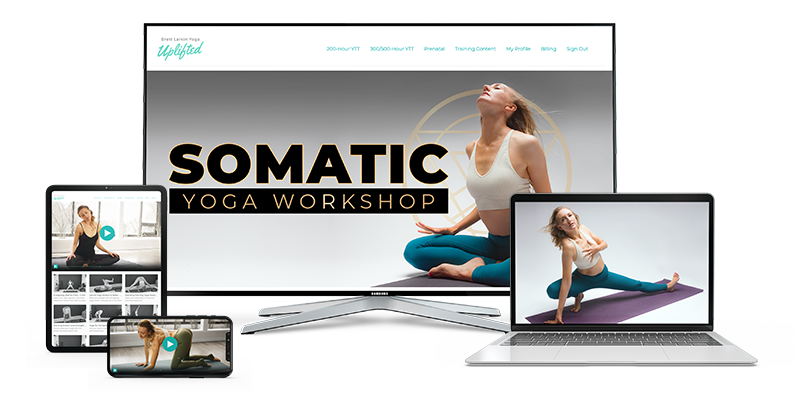
In the context of the self love movement, embodiment serves as a powerful tool for releasing self doubt and limiting beliefs to step into a new you. Embodiment practices, especially on the mat, offer avenues for self-discovery and self-acceptance, reinforcing the interconnectedness of your mind and body in the journey toward greater self-love.
I created the Embodied Yoga Life Coaching program to be your official companion on your journey to embodiment and love. I will be your group facilitator as we use a unique workbook – created just for you – filled with inspiring activities, uplifting affirmations, assessment tools, and a companion journal to allow you to dig deeper and ask the deep questions that all the self help books combined can’t answer – but YOU can! If you’re ready to release self doubt, build self compassion and embrace this year’s resolutions, then I hope you’ll join me. You’ll be pulling from your own in depth knowledge of who you are to give yourself the amazing gift of growing self love through a step by step process.
Final Thoughts
Your embodiment journey can happen in any form, but focused somatic awareness is one of the most helpful. If you want support, I can help…
If you’re interested in practical kriya yoga as a way to improve your daily life and relationships, check out my Yoga for Self Mastery course.
If you’re ready to go deep into embodiment, I want to invite you to Embodied Yoga Life Coaching. This training is an intensive deep dive into your own personal development. You’ll also benefit from the friendship, expertise, networking, and support of like-minded professionals in your handpicked cohort.
Next Steps
- Take a deep dive into embodiment and somatic yoga with my Somatic Yoga certification program.
- If you’re interested in practical kriya yoga as a way to improve your daily life and relationships, check out my Yoga for Self Mastery course.
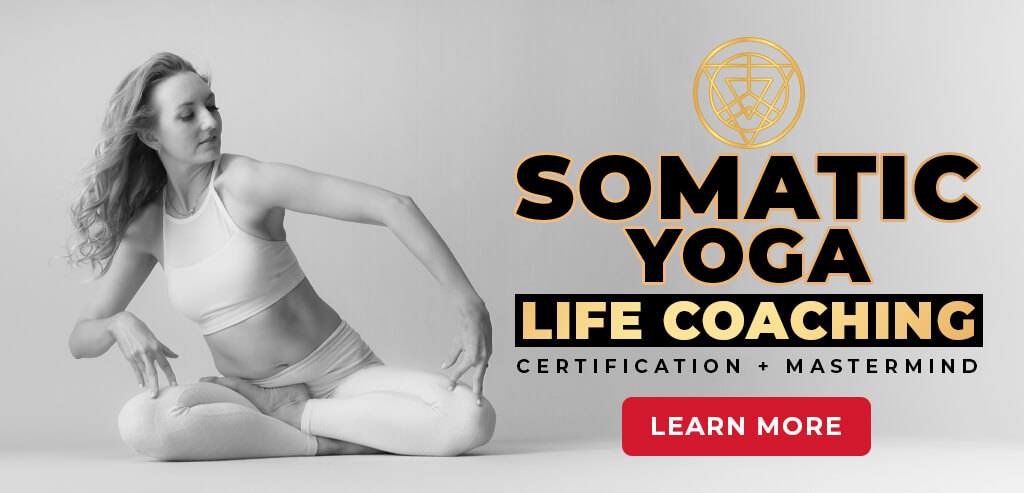
FREE Embodied Yoga Workshop (usually $67) Somatic Techniques & Cord Cutting Ritual

YOU MIGHT ALSO LIKE
- Advanced Pelvic Floor Breathing: A Somatic Approach to Healing
- The Perfect Yoga Practice For Your Menstrual Cycle Energy Levels
- Wise Woman Archetype: Characteristics & Challenges
- The Enchantress Archetype: Characteristics & Challenges
- Leaning Into Soft Feminine Energy: Finding Balance in a Busy World
- How To Fall In Love With Yourself: 7 Daily Practices
- How To Increase Feminine Energy And Reclaim Your Power
- Dark Feminine Energy: Unleashing Your Intuitive and Creative Power
- 11 Feminine Energy Books That Will Change Your Life
- 21 Powerful Daily Affirmations For Healing
- 35 Daily Affirmations For Women That Will Empower You
- Can We Do Yoga During Periods? Here’s The Yoga Philosophy
- Affirmations And Yoga Poses For Gratitude
- Yoga For Piriformis Syndrome: 8 Poses To Relieve Pain
- Yoga For Self Love: A Practice for Healing, Growth, and Transformation
- Yoga For PCOS: Yoga Practice To Manage Symptoms
- How Yoga For Trauma Release Works (Uplifted Perspective)
- Yoga For Third Trimester: My Favorite Poses
- 10 Yoga Poses That Will Strengthen The Pelvic Floor
- Yoga For Nausea: 7 Yoga Poses For A Sore Stomach
- Yoga for Thyroid: 10 Poses For Relief
- Yoga For Endometriosis: 7 Poses for Pain Management
- 9 Yoga Poses For PMS For A Smoother Cycle
- Yoga For Emotional Release: 8 Postures For Peace
- Yoga For Fertility: 10 Yoga Poses For Fertility Support
- Yoga for Bloating: 9 Yoga Poses for Relief
- Yoga For Depression: 10 Poses For Emotional Relief
- 10 Yoga Poses For Period Cramps That Will Ease The Pain
- Yoga For Women: 10 Yoga Poses For Every Stage Of Life

